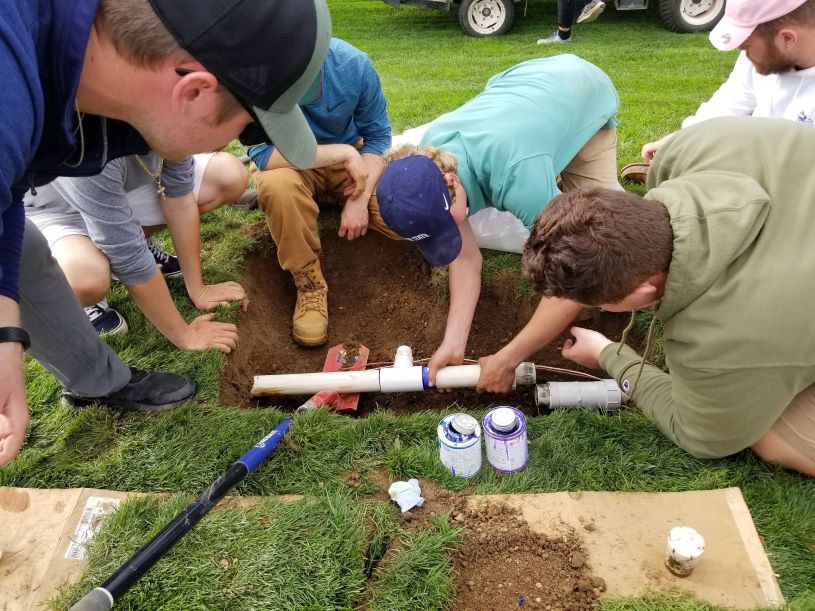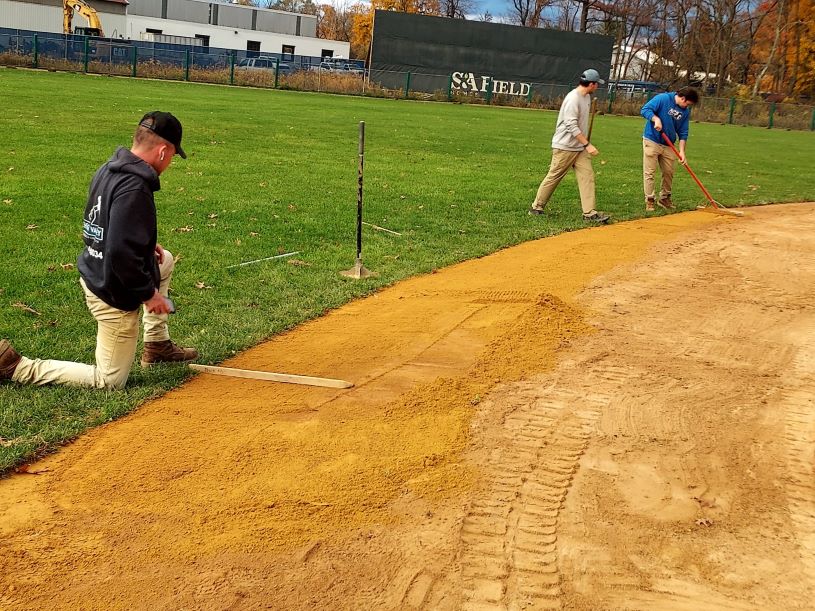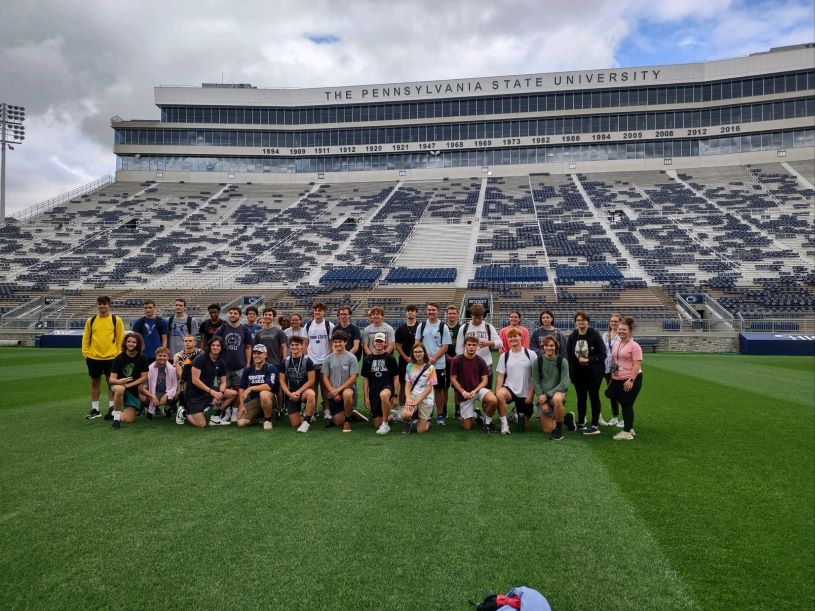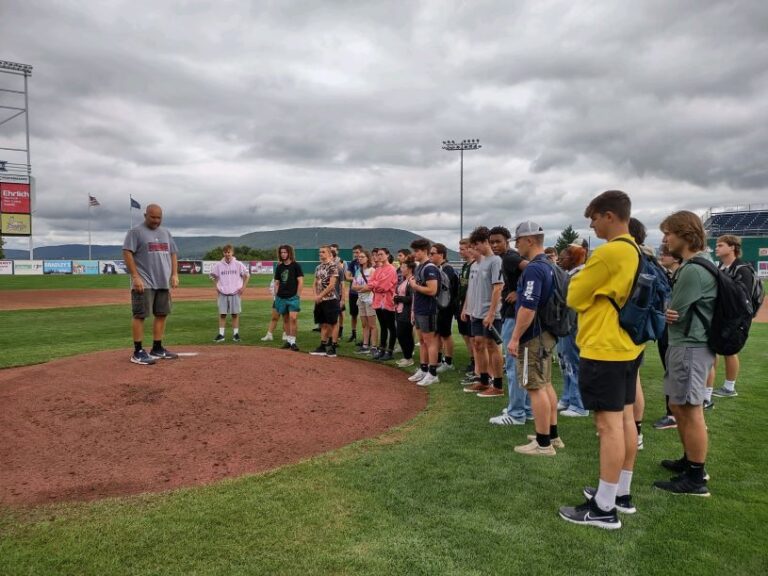The following is the next in our series delving into colleges and universities that offer programs devoted to turfgrass management, turfgrass science, and related disciplines. In this edition, we examine the turfgrass program at Penn State University.
Penn State University
Penn State offers turfgrass certificate and degree options both in person and online.
“We have two in-person resident programs,” said Dianne Petrunak, academic adviser, Turfgrass Science, Penn State. “We have the golf course management certificate program, which is the oldest of all the Penn State programs. It is colloquially known as the two-year program. They come here for four eight-week semesters, and then they have six-month internship between the first year and the second year. We also have our four-year resident bachelor’s degree program.”
Petrunak added that the resident four-year program is primarily students coming to Penn State straight out of high school.
Penn State also offers five different online turfgrass certificates and degrees through its World Campus. The online format provides the flexibility to balance work and family responsibilities while pursuing a high-quality education.
According to Petrunak, the online programs are primarily aimed at returning adults.
Said Petrunak, “We have a basic certificate program that is 15 credits; we have an advanced certificate program that is 30 credits; we have an associate degree that is 60 credits; and we have a bachelor’s degree – which is pretty much identical to the resident bachelor’s degree – that is 120 credits. If you get the bachelor’s degree online, the diploma looks the same as the resident program.

“We also have a 30-credit Master of Professional Studies (MPS), which is geared toward people who have a fair amount of experience in the industry and are looking at positions like head of grounds, general manager, etc.,” she added. “It is generally to combine the business and turf side of things. It is different from a resident Master of Science degree, because with the online MPS there is no research involved and it is a terminal degree that isn’t used to go on and get a Ph.D.”
According to Petrunak, Penn State’s online undergraduate programs are designed to build upon one another. For example, students who complete the advanced certificate can go on to get a degree because the credits from the certificate program can be rolled into the degree program.
“People who have never been to college or for which it has been a long time since they’ve been in college will often start off in one of the certificate programs,” said Petrunak. “For some, that is enough, but other people will decide to go on and get either the associate or bachelor’s degree.”
Penn State’s online undergraduate programs – apart from the basic certificate – require an internship for credit.
“We allow the students to do the internship for credit at their place of employment if they are employed in the turf industry,” said Petrunak. “We know it is unrealistic for people who are working and have a family commitment to be able to leave their job, family and home for three months to go do an internship.”
Also, the online courses are taught by the same professors who teach the resident courses. Some professors record their in-person lectures, while others do separate recordings for the online classes. The online courses also feature reading materials, videos and some online/simulated labs. Students can interact with other World Campus students via online bulletin boards.

According to Petrunak, Penn State has 70 to 80 resident students in its bachelor’s degree program, but another 350 to 400 students in its online World Campus (across all five online programs).
Another advantage of offering an online degree program is that resident students have the flexibility to complete their degree online.
“If students get a job offer, and it is a job they don’t want to turn down, they can take that job and finish the rest of their courses online,” said Petrunak. “So they can still get their degree, but also take advantage of a job opportunity. It’s nice because they don’t need to stay here for another semester or another year, which is really advantageous to our resident students.”
Penn State also has a turf club that meets once per week during the semester. The club often hosts guest speakers from the golf and sports turf markets, allowing students to interact with industry experts.

When it comes to attracting students to its four-year resident program, Penn State brings in high school groups, is involved with FFA’s turf program, interacts with vocational agriculture teachers to encourage involvement, and also hosts rising high school seniors through the Pennsylvania School for Excellence in Agricultural Sciences program. Petrunak also meets with high school students who attend the “spend a day at Penn State” program during the summer.
Said Petrunak, “When I ask students what got them interested in turf, some will say ‘I like to play golf.’ But a lot of times, one of the first things they say is ‘I want to be outside. I don’t want to be in an office.’ If they have worked at a golf course they will often say, ‘I like being able to do different things. It’s not the same thing every day.’
“There are so many job opportunities right now,” she added. “Of the students we have graduating in May, they all have jobs already. A lot of them have had jobs for months now.”
According to Petrunak, the benefit Penn State offers its turfgrass students is the breadth of available programs.
“There is something that is suitable for anybody,” she said.
For more information about Penn State’s resident program and the Turfgrass Science major, visit https://agsci.psu.edu/academics/undergraduate/majors/turfgrass-science.
For information about the online certificate and degree programs available through the Penn State World Campus, visit https://www.worldcampus.psu.edu/degrees-and-certificates/topics/turfgrass.
SportsField Management magazine will detail other college and university turfgrass programs in coming issues. If you would like your school profiled, please contact John Kmitta at jkmitta@epgacceleration.com or 763-383-4405.


